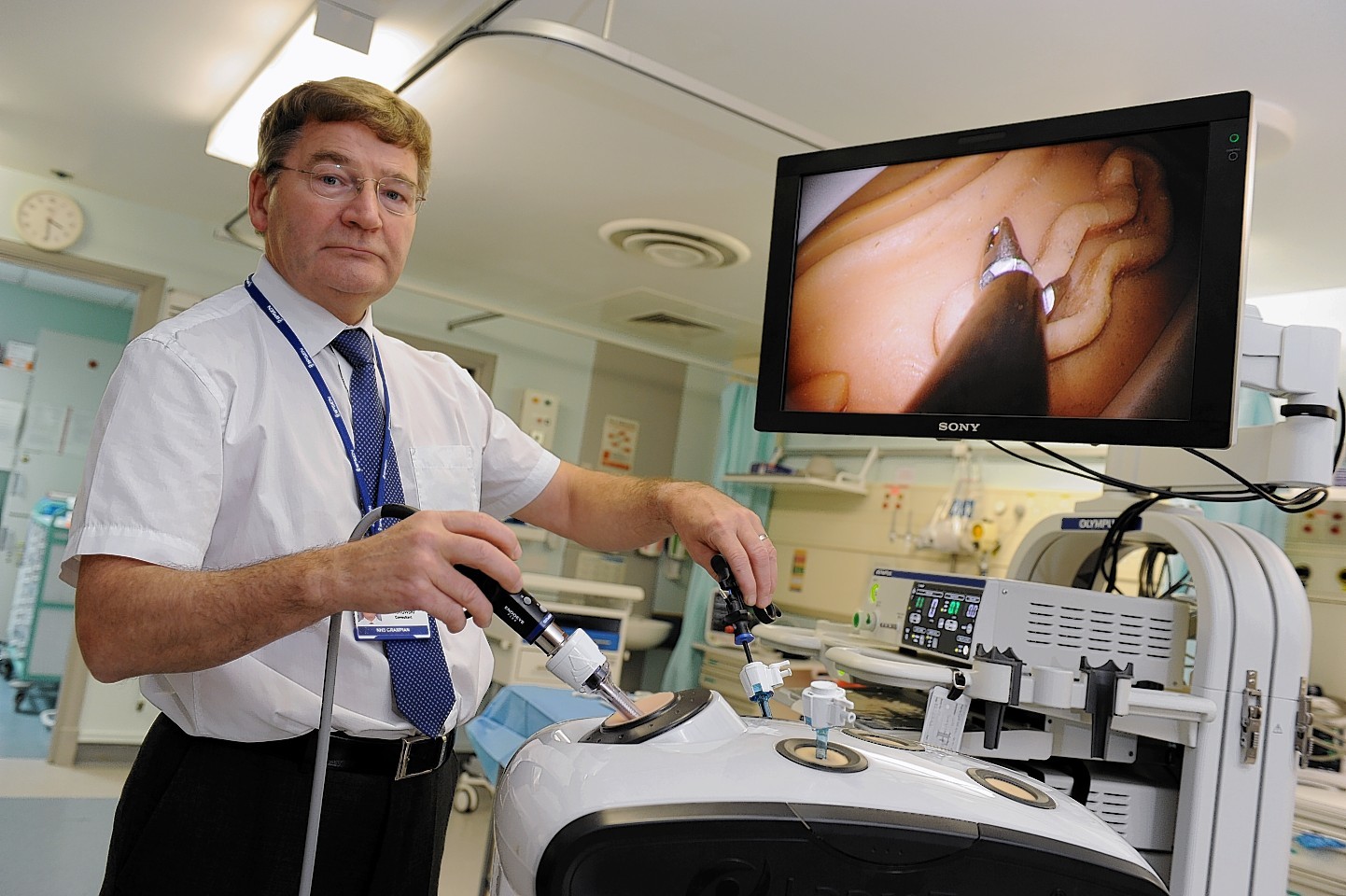More than 200 surgeons from across the UK and Ireland will gather in the north-east this month to see high definition 3D keyhole surgery performed live at Aberdeen Royal Infirmary (ARI).
The city has one of the highest rates of laporascopic surgery in the UK, and has led the way a number of techniques over the last two decades.
Thousands of so-called keyhole procedures have been carried out at the hospital since the technique was introduced in 1991, and ARI has pioneered a number of operations including those on adrenal glands, spleen, kidneys, hiatus hernia and bowel.
Now the Annual Scientific Meeting of the Association of Laparoscopic Surgeons of Great Britain and Ireland (ALSGBI) is taking place at the AECC on November 27-28.
It is the first time the meeting has been held in Scotland and footage of surgery will be streamed live from the hospital to delegates at the exhibition centre.
NHS Grampian surgeon Professor Zyg Krukowski, who is the local organiser of this year’s event, said: “It’s the main meeting for laporascopic surgeons for these islands, but we attract an international panel of experts – we’ve somone coming from India, someone from South Africa, and another from Paris coming to talk on the Friday.
“But on the Thursday the key area is the live operating link which will be to two of the theatres in Aberdeen Royal Infirmary.
“We’ve got two new minimally invasive theatres just been opened this year so we’ll be broadcasting this high definition 3D imaging directly to the exhibition centre.”
Keyhole surgery to the abdomen and pelvis is performed through a number of ports which are inserted into the body through small incisions. This allows the surgeon to carry out the procedure while causing the patient less pain, and offering a reduced recovery time.
Aberdeen boasts a higher rate of laporascopic surgery than many centres in the UK.
Professor Krukowski added: “We were one of the earliest introducing innovators and we’ve maintained that, and one of the good things is we’ve got fantastic theatre staff who are really up to it.
“In many centres they won’t allow them to do laporascopic surgery out of hours, but that’s been routine here for 20 years.”
